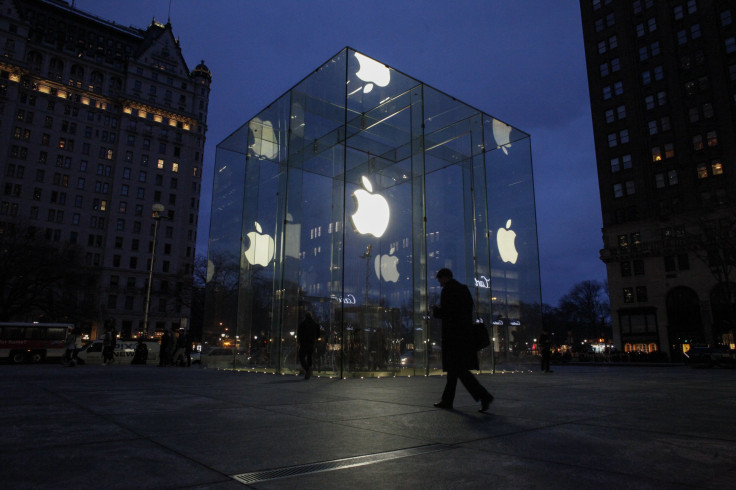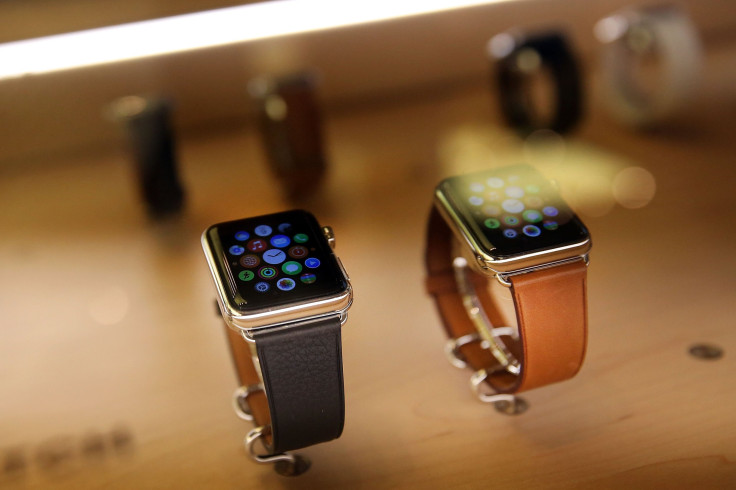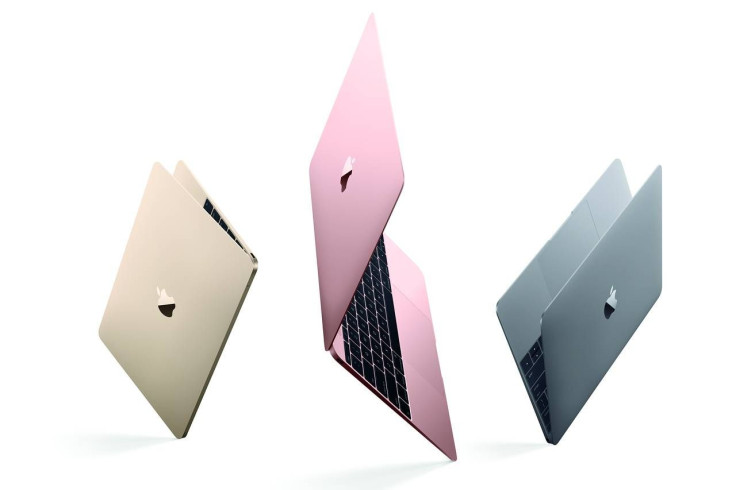Peak Apple: How iPhone, iPad, China, India, Cars And Acquisitions Will Shape Its Future

No matter how you slice it, Apple is in trouble: iPhone sales are plummeting, shares continue to fall, more than $75 billion was wiped from its market value in three days, and the company has no new products on the horizon. And on Thursday, one of its most influential shareholders, billionaire Carl Icahn, told CNBC that he had sold his entire stake in the Silicon Valley giant.
But it's not like we haven't been here before. Over the course of its 40-year history, Apple has had more highs and lows than many longer-running companies will ever experience. But for the past seven years, since the introduction of the iPhone and subsequently the iPad, Apple had been on a winning streak, breaking record after record as it surged to become the world's most valuable company.
Now, with the tech titan's first quarterly revenue decline in 13 years, comes the inevitable question: Is it all downhill from here?
Here are five reasons we may have reached peak Apple:
1. The days of huge iPhone growth are over.
The iPhone 6 was both Apple’s most successful smartphone release to date and a huge weight around its neck. As CEO Tim Cook said during the earnings call Tuesday, “if we would have the same rate on 6s that we did 6, it would be time for a huge party.” Analysts agree that the iPhone 6 was simply too successful for its (or the company's) own good. It set expectations way too high, and the iPhone 6s was never going to meet them.
There are a number of reasons for this. The iPhone 6 and iPhone 6 Plus were Apple's first really big-screen smartphones, meaning everyone waiting for Apple to make a bigger iPhone upgraded in 2014. It also coincided with Apple's exponential growth in China — growth that has now gone into reverse.
The problem for Apple is that upgrade cycles are lengthening and there are very few markets like China where it will see such rapid growth again.
2. Where are the new products?
Launched this time last year, the Apple Watch was the company’s first new product line in five years, and while Cook said this week the company’s “product pipeline has amazing innovations in store,” it's hard to see where the company will be able to make up for the iPhone decline anytime soon.

The Apple Watch sold well in the first year, with estimates suggesting the company sold 12 million units (compared with just 6 million of the original iPhone), but doubts remain over the long-term viability of the smartwatch business, despite research suggesting satisfaction remains high.
There's little doubt Apple is working on new products at its Cupertino, California, headquarters, among them the buzzed-about and fabled Apple Car. The problem for investors? There's absolutely no indication when — or indeed if — that or any other product will come to market. Remember when everyone said Apple would launch its own television set? Last reports suggest those plans were shelved two years ago.
Even if Apple does launch an iCar, consider how difficult it is for a nontraditional car manufacturer to get into that business (witness: Tesla). It could be a long time before Apple makes a profit from any car business.
3. The iPad is dead.
Unit sales of iPads have declined for the ninth consecutive quarter, and this was despite the introduction of the new 12-inch iPad Pro in November. It doesn’t look like the current quarter will be any different, even with the introduction of the new 9.7-inch iPad Pro in March.
Walter Piecyk, Apple analyst with BTIG, notes that at one point in 2012 the iPad was a cornerstone of Apple's earnings, contributing 25 percent of overall revenue. Today it contributes less than 10 percent, and BTIG is expecting that to decline again in the current quarter, cutting estimates by $1.5 billion.
In the current quarter, Apple said on its earnings call it predicts its 10th consecutive quarterly decline in iPad sales. The company continuously spouts research showing “97 percent of iPad customers are satisfied,” and it may be they don’t see any reason to upgrade.
The iPad business was always going to decline faster than the iPhone business, given the much slower upgrade cycle. However, with the iPad Pro launch — and the iPad mini before it — failing to reverse the trends, even briefly, any further growth there seems unlikely.
4. Unwillingness to buy growth.
Apple's cash pile currently stands at a staggering $233 billion. That's a lot of money by anyone's standards, and while most of it is siloed overseas or in long-term securities, if Apple needed that cash (for, say, the acquisition of a dominant player in a market Apple doesn't already operate in), it could access it.
Cook on Tuesday said: “We’ve made 15 acquisitions in the last four quarters to accelerate our products and road maps, and we’re always on the lookout for companies with great technology, talent and strategic fit.” Only one of those 15 companies was a household name — Beats — and for the most part, Apple quietly acquires startups whose technology gets slowly integrated into its products.
A perennial suggestion in Silicon Valley is that Apple could buy Netflix rather than do what it's doing now — developing its own content to showcase on iTunes and Apple TV. Additionally it could buy Jawbone to get into the fitness tracker market; DJI if it wanted a drone division; Uber, Airbnb, Bang & Olufsen — the list is endless.
But it might not be that simple. The problem — despite seeming counterintuitive — may be that Apple just doesn't have enough money. “Further, investors want Apple to buy companies as a panacea for growth in the near to medium term, but in our view the issue is that any companies that could meaningfully change Apple’s growth picture over the next one to two years are probably too large to acquire,” Gene Munster, Apple analyst with Piper Jaffray, wrote in a research note this week.
5. India is not China.
With a population soaring above 1.2 billion people and smartphone penetration of under 20 percent, India is seen by many manufacturers as a huge opportunity. For Apple, many seem to think it will repeat the success it saw in China over the past couple of years in the subcontinent, but that's just not going to happen — for a lot of reasons.
On Tuesday Apple said it had seen 56 percent growth in iPhone sales, compared with the same period last year. That's great, except 56 percent more of very little is still very little. Apple holds just 2 percent of the Indian smartphone market, according to CounterPoint Research, where the vast majority of devices sold cost under $150. Apple's cheapest device, the iPhone SE, costs 39,000 rupees ($584) which is almost $200 more than it costs in the U.S.
Cook said the lack of 4G network coverage and the fact that phones are sold through retail stores rather than network operators are holding back the iPhone in India, but far and away the biggest factor for consumers there remains price.
I can’t stress enough how much more price sensitive India is than China (is and was). Hope Apple understands this.https://t.co/UPaZxuAg2C
— Ben Bajarin (@BenBajarin) April 29, 2016
So much for the bad news. Now here are five reasons we may not have reached peak Apple:
1. The Smartphone revolution is just starting.
According to Ericsson, there were 2.6 billion mobile subscribers in 2015. In its annual mobility report, the company predicts that by 2020 this will have grown to 6.1 billion, as the smartphone revolution will have spread from developed markets to developing countries and beyond.
While the demand for iPhones in these markets will be considerably less than markets like Western Europe, China and the U.S., there will still be demand, and with Apple's brand still commanding a strong appeal, the iPhone will be an aspirational product.
Apple sold 51.2 million iPhones in the first quarter of 2016, and that was seen by some as a disappointment. When you consider that Microsoft sold just 2.3 million smartphones in the same period, it is fair to say Apple still has a hugely profitable business on its hands.
Not only is Apple able to sell a huge number of iPhones, it is able to make more money from each sale than any other smartphone manufacturer, and that means even if Apple sells less iPhones, it will still make a lot of money.
2. Apple is the most valuable brand.
Whether its Forbes' list or Interbrand's rankings, Apple is seen as the world’s most valuable brand. Interbrand says its “relentless focus on the user,” which is embedded in everything the company does, helps it maintain its position at the top.
As the world becomes ever more digital, as the everyday things we use — from cars and televisions to light bulbs, fridges and washing machines — become “smart,” the world will rely ever more on technology. As the world’s leading technology brand, Apple is perfectly placed to take advantage of that.
However, it is important for Apple to remember why it has gained the level of brand awareness and loyalty it has, and simply slapping the Apple logo on a new device will not be enough.
3. Apple has a lot of money.
As mentioned above, Apple has a pretty huge cash reserve to fall back on if times get tough. This gives Apple something most companies in the tech world don't have — time. With such a huge safety net, Apple knows it doesn't have to produce a car this year or next or even the year after. It knows it can continue to sell millions of iPhones and iPads (maybe at lower levels than before) and not have to worry.
This is a luxury that will allow Apple to make the right choices rather than ones that are based on getting the products to market faster. Apple wasn't the first company to launch a smartphone or tablet, but when it did launch the iPhone and iPad, it knew they would work the way people wanted.
4. Apple controls everything.
Google's Android is the world's most dominant mobile operating system. It has a greater than 80 percent share of the smartphone market, and yet it would not be accurate to say Google has control over all Android phones.
For Apple, everything it sells is entirely controlled by it. The Mac OS X operating system on its laptop and desktop computers is developed entirely by Apple. The iOS operating system on its iPhones and iPads is developed entirely by Apple. The iCloud storage system is controlled entirely by Apple (though its implementation at the moment is so poor, Apple may not be boasting about that one too much).
Crucially, it also controls a huge amount of the content distributed on these devices. While it doesn't make the apps or games sold on its App Store, it does take a 30 percent cut. It also tightly controls what type of apps are allowed and as a result has created a trusted marketplace where users spend much more — with a report by analytics company App Annie in January saying App Store revenue was 75 percent higher than Google's Play Store.
In its most recent earnings, Services (which includes everything from iTunes, Apple Music, App Store, Apple Pay and iCloud revenue) was Apple's second-biggest revenue stream behind the iPhone, indicating just how important it is for Apple.
5. MacBooks continue to outperform the PC market.
The PC market is not doing very well, and that is unlikely to change anytime soon. Therefore, pointing to Apple's PC division as a positive may seem strange — except that Apple's Mac and MacBook range have been consistently outperforming the PC market for the past couple of years.
Apple's PC offerings are unashamedly high-end, but in recent years we have seen all other manufacturers try to emulate the MacBook in terms of portability and design. When HP launched its Spectre laptop this month — calling it the thinnest laptop in the world — it specifically referenced its ambition to emulate Apple in terms of design.

Gartner and IDC both reported last week the PC market had declined by around 10 percent in the first quarter of 2015, and while Apple's sales were down year over year, the company is widely expected to launch a major refresh of its laptop range at its developer conference in June, which will give the lineup another boost.
Apple's MacBook business in the past quarter, despite being down sequentially, still generated over $5 billion. That may pale in comparison with the $32 billion the iPhone brought in, but is still a hugely profitable business.
© Copyright IBTimes 2024. All rights reserved.






















